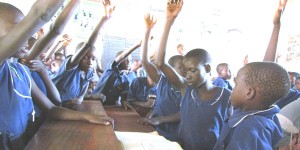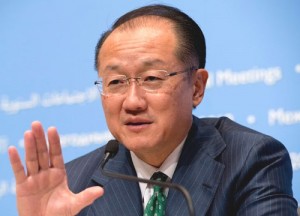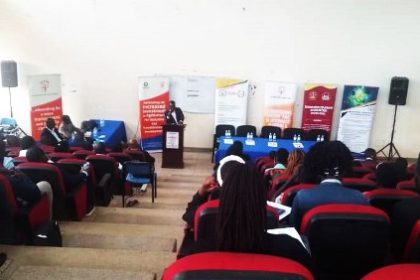World Bank says students in poor countries face bleak future
September 27—A new report published by the World Bank Group in mid-week, says the future economic prospects for students studying in primary and secondary schools across the developing world, look gloomy due to low educational standards and poor facilities.

The authors of the report say millions of young students in low and middle-income countries face the prospect of lost opportunity and lower wages because their schools are failing to educate them to succeed.
According to the World Development Report 2018: Learning to Realize Education’s Promise when third grade (third year in primary) students in Kenya, Tanzania, and Uganda were asked recently to read a sentence such as, “The name of the dog is Puppy” in English or Kiswahili, three-quarters did not understand what it said.
In rural India, nearly three-quarters of students in grade 3 could not solve a two-digit subtraction such as ‘46 – 17’ and by grade 5, half still could not do so.
World Bank Group President Jim Yong Kim said. “This learning crisis is a moral and economic crisis. When delivered well, education promises young people employment, better earnings, good health, and a life without poverty. For communities, education spurs innovation, strengthens institutions, and fosters social cohesion.
“But these benefits depend on learning, and schooling without learning is a wasted opportunity. More than that, it’s a great injustice: the children whom societies fail the most are the ones who are most in need of a good education to succeed in life,” he said.
World Bank Chief Economist, Paul Romer said, “The only way to make progress is to ‘find truth from facts.’ If we let them, the facts about education reveal a painful truth. For too many children, schooling does not mean learning.”
Findings in the report show that millions of young students in low and middle-income countries face the prospect of lost opportunity and lower wages in later life, because their primary and secondary schools are failing to educate them to succeed in life.
According to the report, without learning, education will fail to deliver on its promise to eliminate extreme poverty and create shared opportunity and prosperity for all.

Kim views the problem as both a learning and economic crisis whose solution depends on improving the quality of delivery.
‘Even after several years in school, millions of children cannot read, write or do basic math. This learning crisis is widening social gaps instead of narrowing them. Young students who are already disadvantaged by poverty, conflict, gender or disability reach young adulthood without even the most basic life skills,’ the report states.
While not all developing countries suffer from such extreme learning gaps, many fall far short of levels they aspire to. Leading international assessments on literacy and numeracy show that the average student in poor countries performs worse than 95% of the students in high-income countries—meaning such a student would be singled out for remedial attention in a class in those countries. Many high-performing students in middle-income countries—young men and women who achieve in the top quarter of their groups—would rank in the bottom quarter in a wealthier country.
The report, written by a team directed by World Bank Lead Economists, Deon Filmer and Halsey Rogers, identifies what drives these learning shortfalls—not only the ways in which teaching and learning breaks down in too many schools, but also the deeper political forces that cause these problems to persist.
The suggest three main solutions, first, assess learning, so it can become a measurable goal; Second, make schools work for all children and mobilize everyone who has a stake in learning.
“Developing countries are far from where they should be on learning. Many do not invest enough financial resources and most need to invest more efficiently. But it is not only a matter of money; countries need to also invest in the capacity of the people and institutions tasked with educating our children,” Jaime Saavedra, a former Peruvian Education Minister, and now the World Bank’s Senior Director for Education said.

 Shell Club rewards first winners with brand new motorbikes in Mbale
Shell Club rewards first winners with brand new motorbikes in Mbale
 CSBAG roots for increased funding for renewable energy
CSBAG roots for increased funding for renewable energy
 Equity walks tried and tested path to deliver solid half-year
Equity walks tried and tested path to deliver solid half-year
 Nile Breweries primes retailers for brave new world
Nile Breweries primes retailers for brave new world
 Uganda calls for collaboration with airlines in fight against illicit trade in wildlife
Uganda calls for collaboration with airlines in fight against illicit trade in wildlife
 Airline industry top guns dust-off passports for Uganda hosted 55th AFRAA annual meet
Airline industry top guns dust-off passports for Uganda hosted 55th AFRAA annual meet
